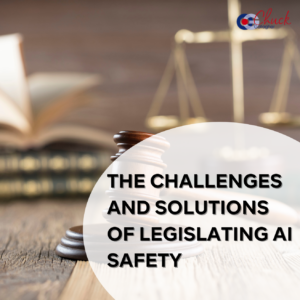 Artificial Intelligence (AI) is one of the most groundbreaking technologies in the digital age, promising transformative impacts across industries and facets of human existence. But with great power comes a dire need for regulation. The central conundrum lies in whether our legislative bodies, primarily devoid of a technical background, are aptly equipped to oversee the mammoth task of AI governance. Here, we delve into the core challenges lawmakers face and the potential strategies they might employ to bridge the knowledge chasm.
Artificial Intelligence (AI) is one of the most groundbreaking technologies in the digital age, promising transformative impacts across industries and facets of human existence. But with great power comes a dire need for regulation. The central conundrum lies in whether our legislative bodies, primarily devoid of a technical background, are aptly equipped to oversee the mammoth task of AI governance. Here, we delve into the core challenges lawmakers face and the potential strategies they might employ to bridge the knowledge chasm.
1 .The Technical Dilemma:At the forefront is the pervasive lack of technical knowledge. AI isn’t just a single technology; it’s an amalgam of intricate algorithms, data science, machine learning, and more. Without a grounded understanding of these components, legislators stand on shaky grounds when crafting policies to regulate this domain.
2.The Expertise Paradox:Legislators might circumvent their lack of knowledge by leaning on external experts. But here’s the rub: if they’re hesitant to seek this very expertise, they risk formulating policies that may be overbearing, thus curbing innovation, or be overly permissive, exposing the public to unchecked AI risks.
3. Keeping Pace with AI’s Evolution:AI isn’t static. Its rapid advancement, marked by new algorithms and use cases sprouting frequently, demands that any legislative measures be dynamic. This becomes an ongoing race for not technically attuned lawmakers, often leading to outdated or ineffective policies.
4. The Unity Quandary:Sound legislation is often the product of consensus. When lawmakers not well-versed in AI come to the policy table, it can lead to protracted debates rooted in misinformation. The result? A slow legislative process and, often, diluted regulations.
5. The Path Forward:While these challenges seem daunting, they aren’t insurmountable. Addressing the AI-legislation conundrum necessitates a multi-pronged approach:
- Education and Training: To bridge the knowledge gap, tailored training programs for lawmakers on AI’s nuances can be a game-changer. This would empower them with a foundational understanding, enabling informed policy-making.
- Collaboration is Key: A symbiotic relationship between lawmakers and AI professionals, be they researchers, industry veterans, or ethicists, can foster policies that are both technically sound and socially beneficial.
- Regulatory Oversight: Creating dedicated regulatory bodies or commissions armed with multidisciplinary experts can act as both a guide and a checkpoint for AI-related legislative endeavors.
In Summary, AI’s technological revolution demands an equivalent legislative prowess revolution. While it’s undeniable that many legislators might be swimming against the current, given the lack of technical understanding, proactive steps in education, collaboration, and regulatory oversight can help them navigate AI governance’s tumultuous waters. For in the balance lies technological advancement and the safety and well-being of the public it serves.


